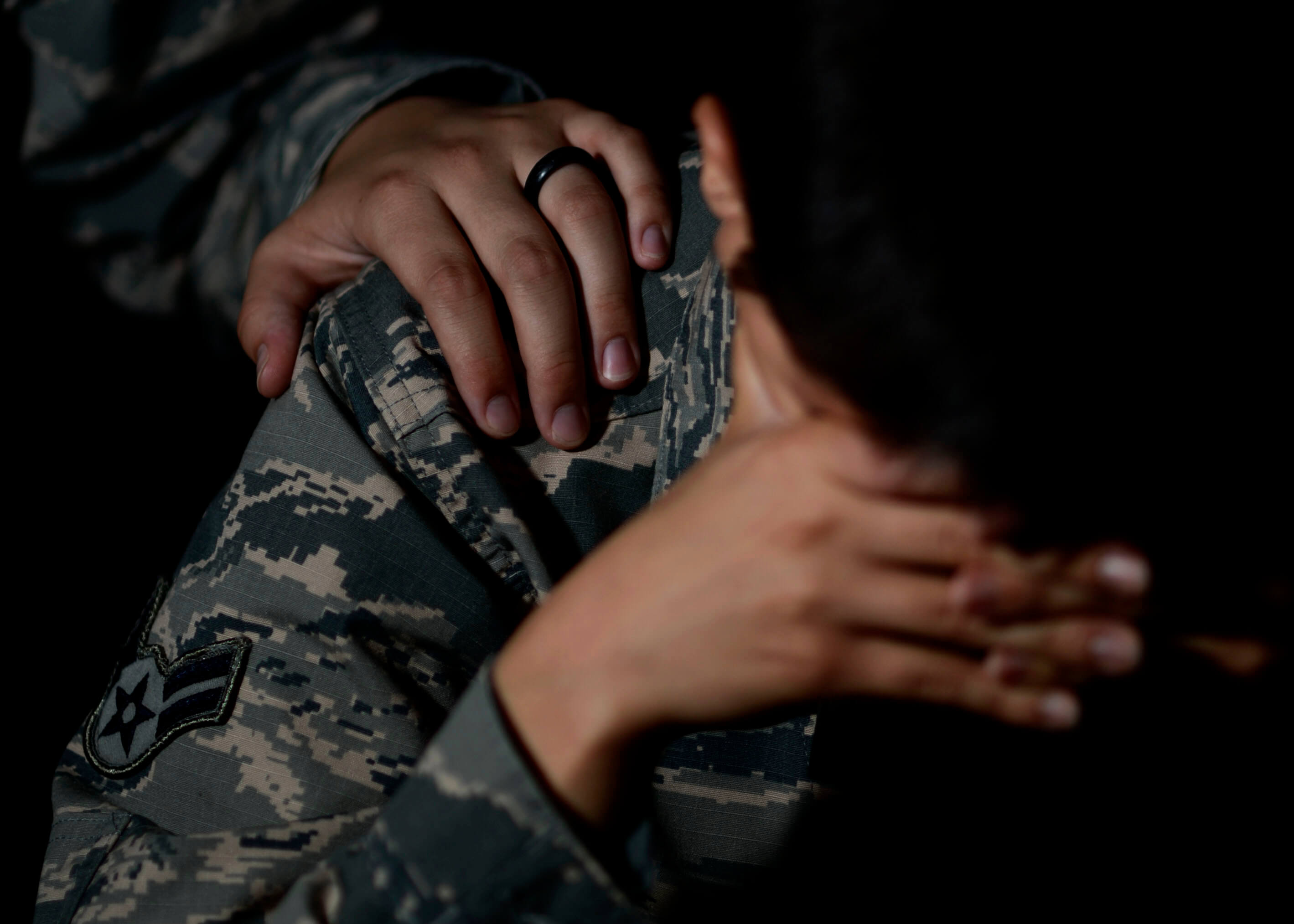Navigating back from suicide: Air Force Academy provides assistance to survivors

(U.S. Air Force illustration by Airman 1st Class Kathryn R.C. Reaves)
By Laurie Wilson, Feb. 28, 2019
U.S. AIR FORCE ACADEMY, Colo. —She sat motionless, hands gripping a luke-warm mug of coffee, trying to comprehend the shocking news that just devastated her world. “I never even saw it coming,” she thought.
This scene is more often than not a common experience for those left to cope in the aftermath of suicide. Maybe you’ve been here too.
Last year, 58 active-duty Airmen and three reserve Airmen committed suicide, less than in 2017, but still troubling said the director of Air Force Integrated Resilience Brig. Gen. Michael Martin. The World Health Organization reports suicide as the 10th leading cause of death in the U.S.
The Air Force conducts a comprehensive suicide prevention campaign, but suicide in the ranks continues.
And with it comes a wide wake of devastating fall-out for those left behind. With all the ‘danger signal’ training provided to Total Force Airmen, why is it still happening?
“Airmen get so much great training about prevention strategies that they also know how to hide it,” said Academy Chaplain (Lt. Col.) Lance Giannone. “This leaves survivors with a full range of unanswered questions; the main one being ‘what did I miss?’”
Jeremy Morales, director of the Family Advocacy Office at the Air Force Academy said he has lost seven people in his life to suicide.
“None of them gave any warning signs. I understand how survivors feel,” he said.
Supporting Airmen and their Families
The Air Force and the Academy is not satisfied with simply working to eradicate suicide from its ranks –it’s committed to supporting Airmen and their families deal with the trauma suicide produces.
The chaplain Corps is always available to work with Airmen, cadets, family members and the school’s staff to navigate through the “emotional roller coaster” of grief, anger, shock and their own trauma, Giannone said.
“What survivors need to deeply understand is that they can’t own guilt that does not belong to them,” he said. “Eventually, the roller-coaster levels out, and it’s easier when survivors have adequate support to help them get there.”
Morales and his staff at the Academy’s Family Advocacy Center devote their time to helping survivors, no matter their relationship to the deceased. He and his team want to help because they do understand where survivors find themselves, he said.
For cadets, the Peak Performance Center offers short-term individual services to help them deal with the stress, low self-esteem and grief that can accompany this kind of trauma. Capt. Robin Morris is the outreach coordinator for the PPC. The PPC supplements the mental health and advocacy services available at the 10th Medical Group, according to Morris.
“There’s often a stigma associated with suicide that can preclude someone from speaking out in group sessions,” she said. “We handle each cadet individually to help them deal with their grief after such a loss. The PPC is also able to refer cadets to other organizations that support what they’re facing.”
Morris said those losing a loved one or friend to suicide can sometimes experience suicidal thoughts themselves.
The Academy’s Military Disaster Health Team works to prevent these “copycat” suicides by providing commanders with mental health technicians who direct active duty Airmen to recovery and resilience resources.
Helping one another
Morales said finding ways to deal with the loss in a positive manner can help survivors.
“The suicides I mentioned deeply affected my family too. My mother eventually started a business specializing in cleaning suicide scenes so other families don’t have to ‘clean death’ while going through their loss,” he said.
When it comes to supporting a co-worker or friend who has lost someone to suicide’s “harsh bite”, Morales said to “be a sensitive and patient healer.”
“Foster relationships where laughter and tears can present themselves and the healing will meet you there,” he said. “Tears are a wonderful gift in the healing process. A healer understands this. Just being present with someone who is hurting from such a loss is deeply powerful and contributes to that person’s recovery.”
Be patient with yourself also, Morales said. Navigating back from the self-inflicted loss of a friend, colleague or loved-one can take years.
“It took me 26 years to fully process the pain of one of my losses,” he said.
Call 1-800-342-9647 to contact Military One Source, the Defense Department’s suicide prevention resource center.